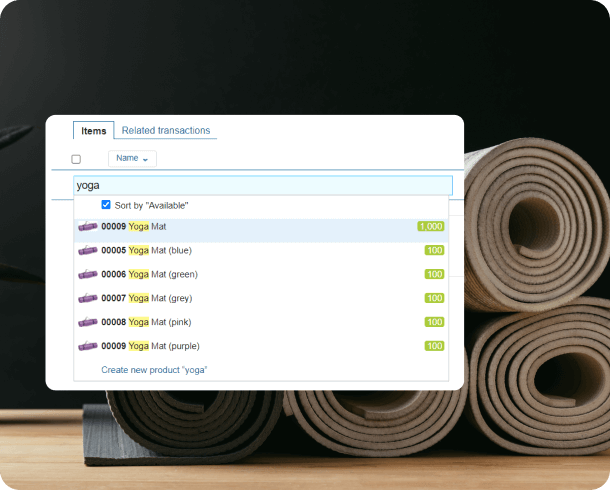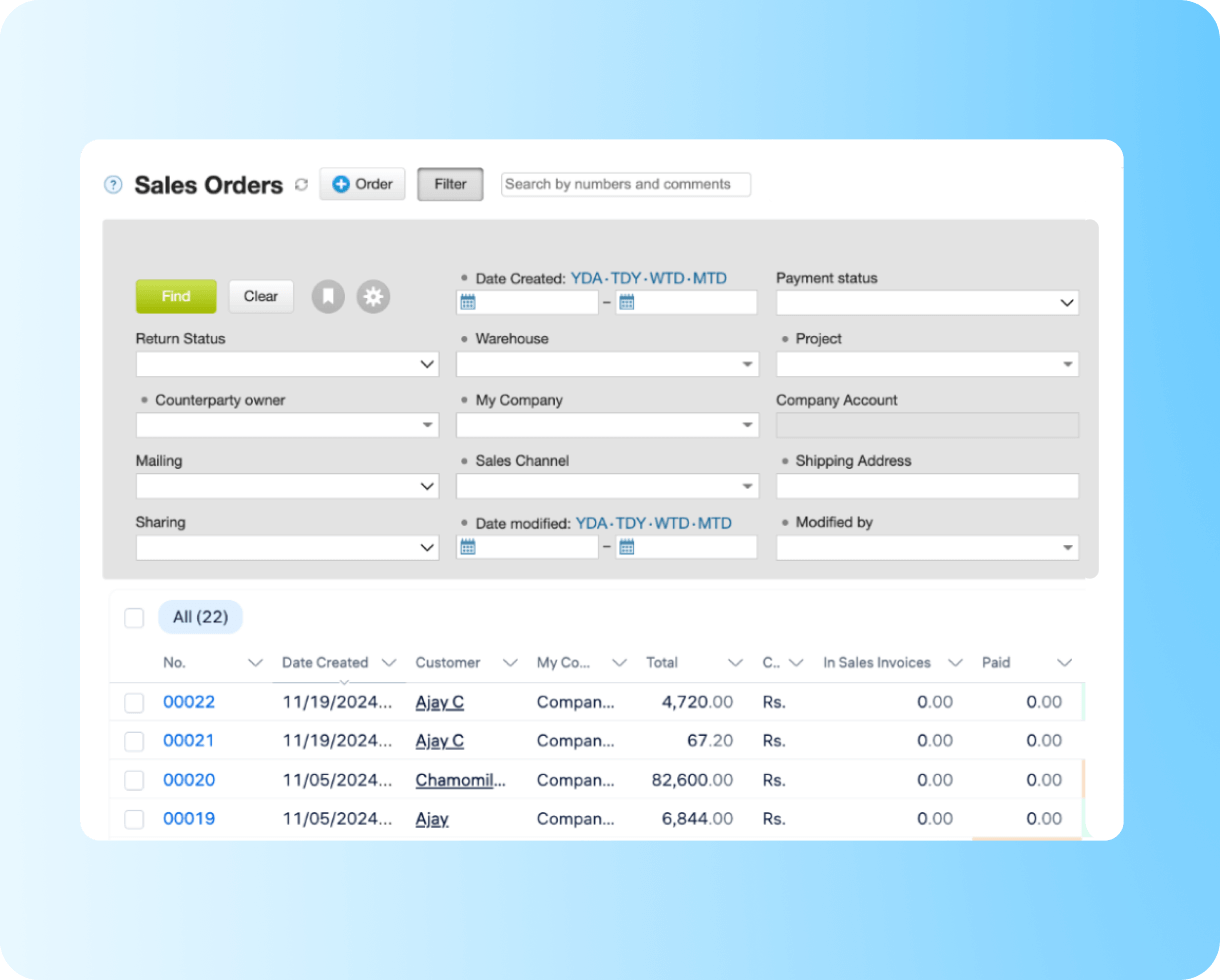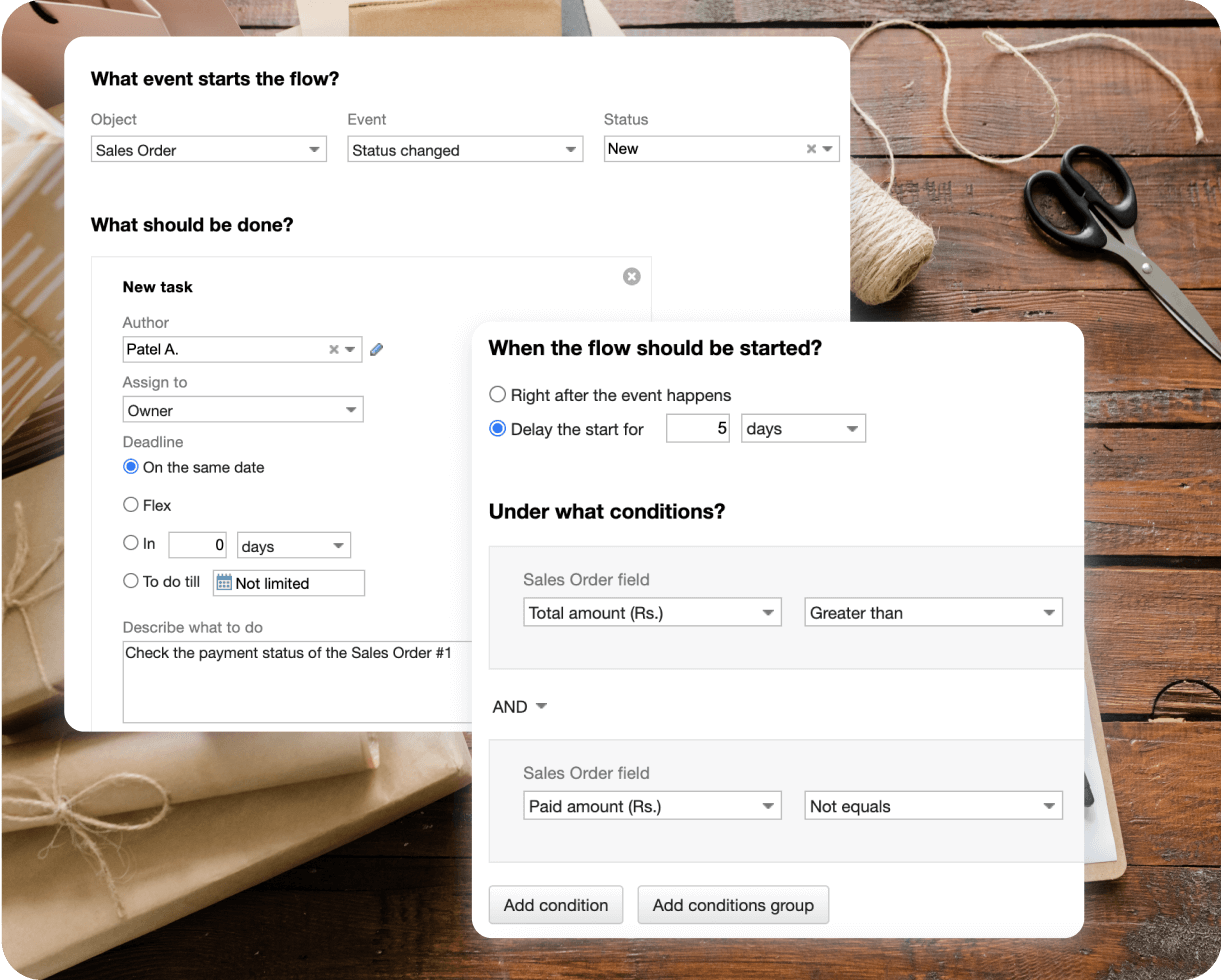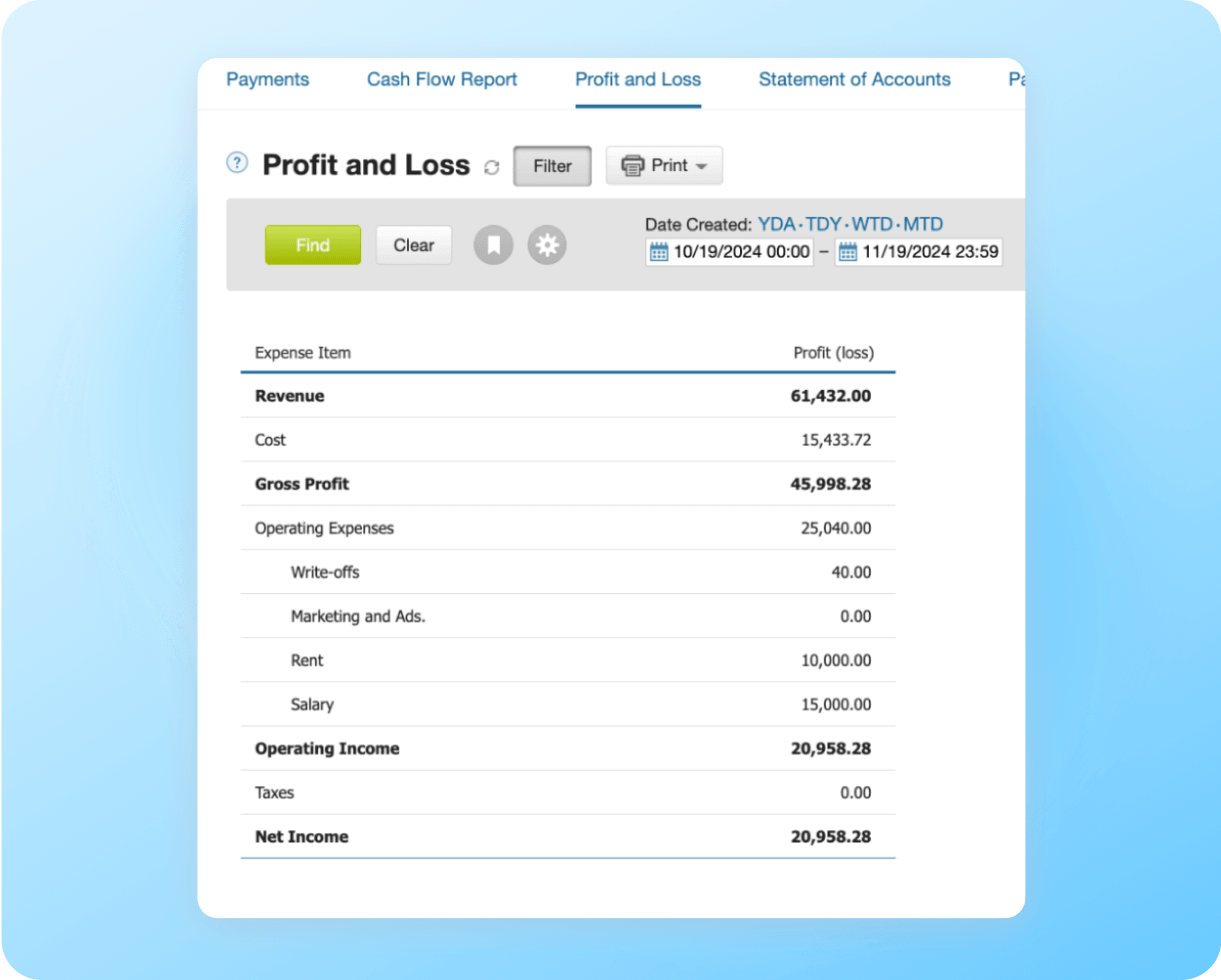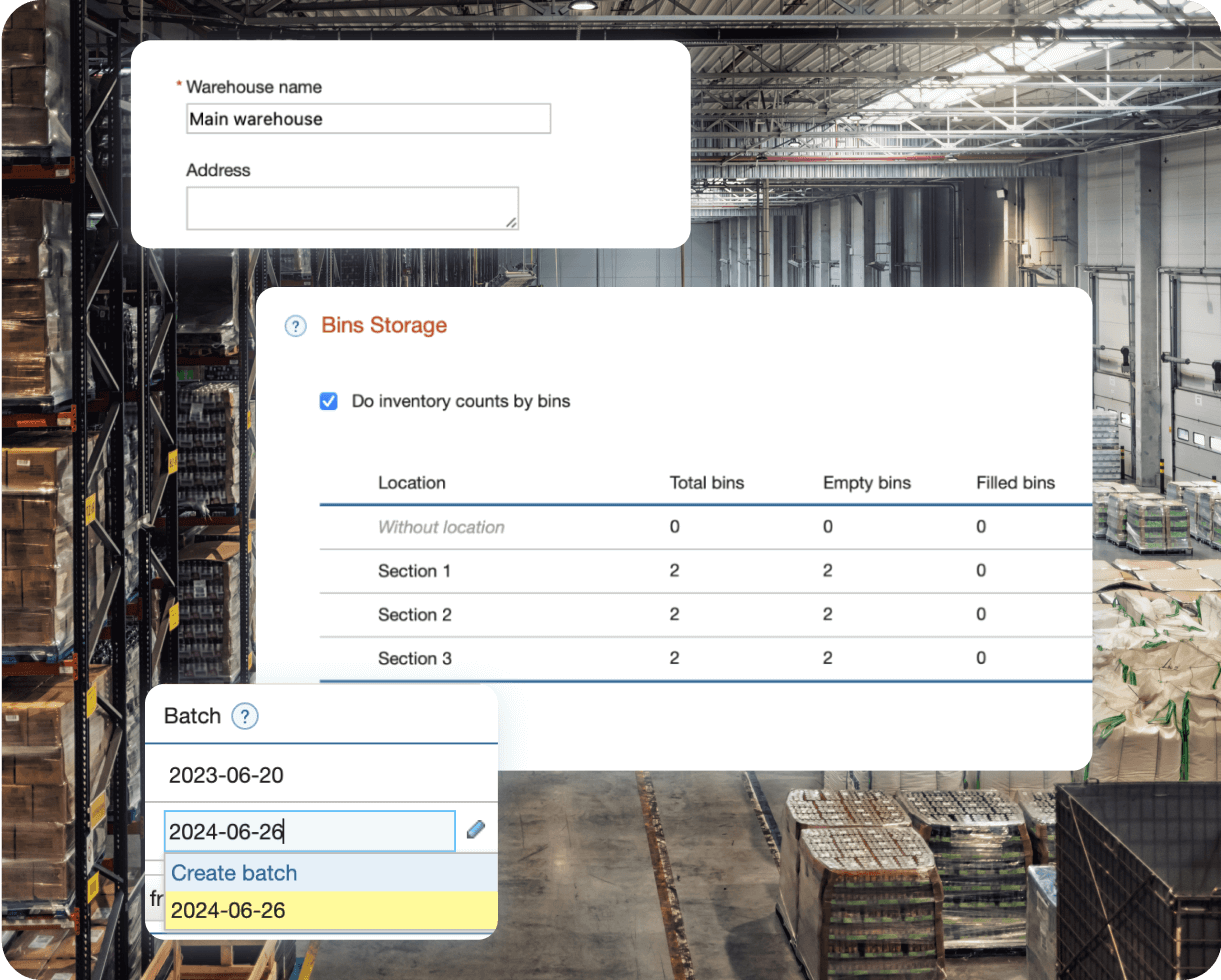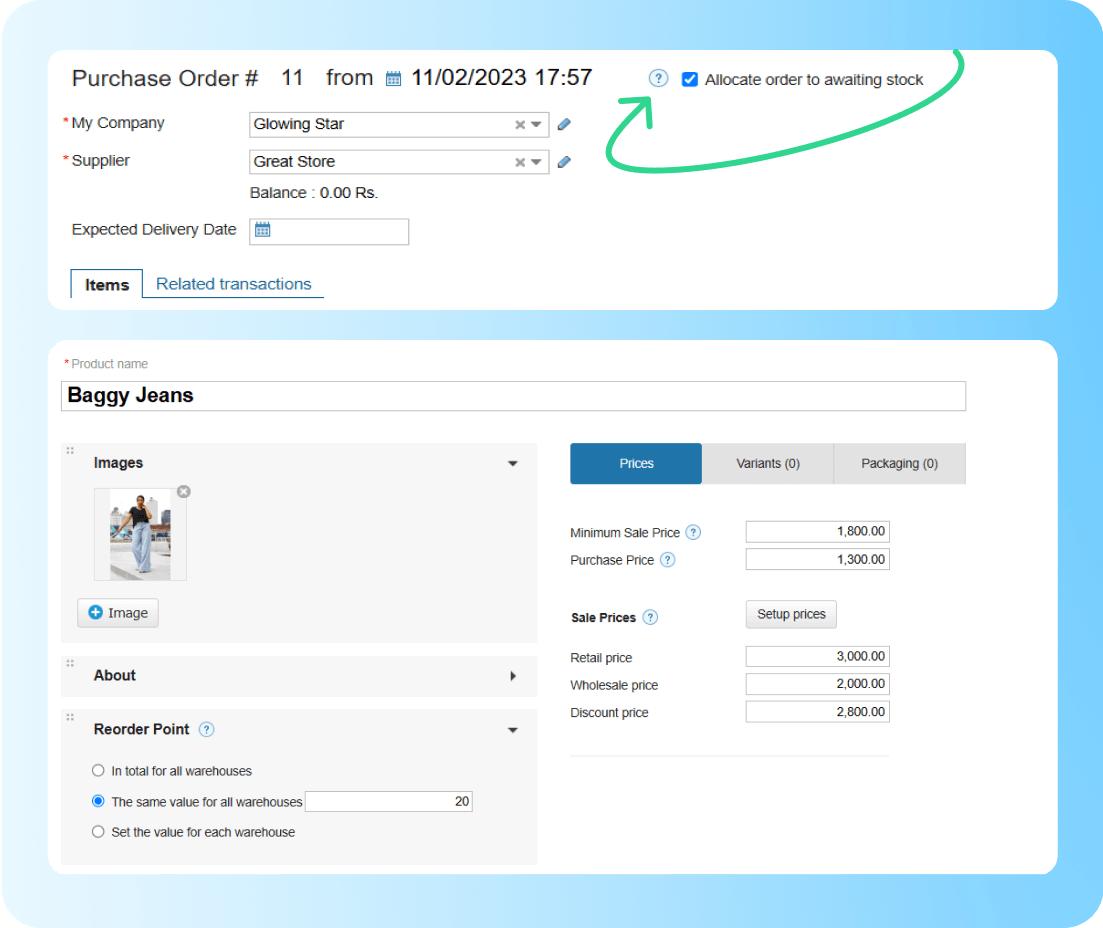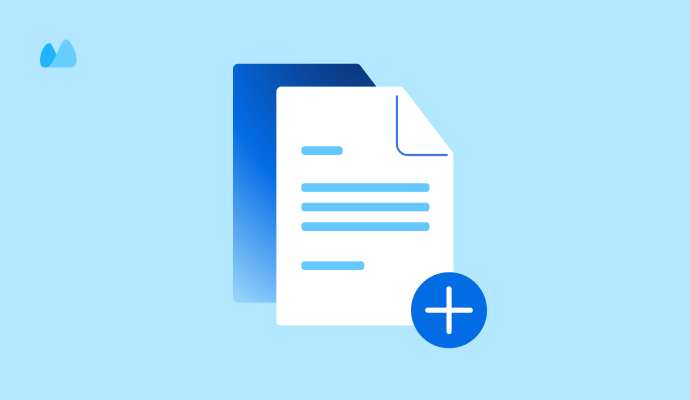In Kladana, we manage sales, production, inventory, and purchasing. Previously, we guessed stock levels and often faced situations where we needed to ship a product, but didn’t have it in stock. Now, we always see up-to-date data in the marketplace warehouses.
Using the Purchase module, it’s convenient to monitor the stock levels of raw materials and components, plan purchases, and create purchase orders directly from production orders.


